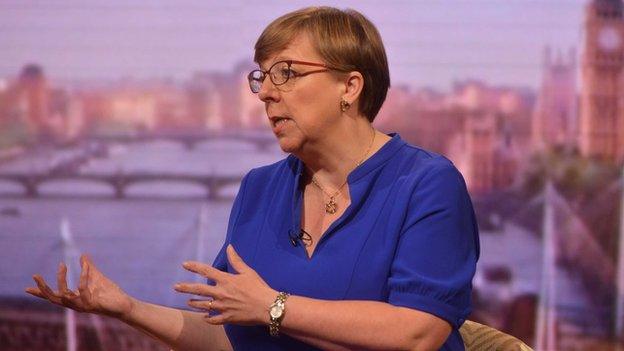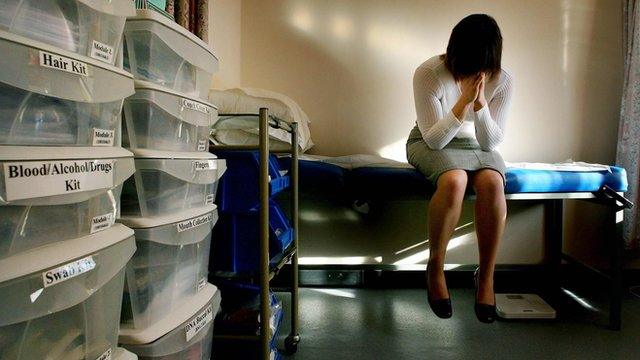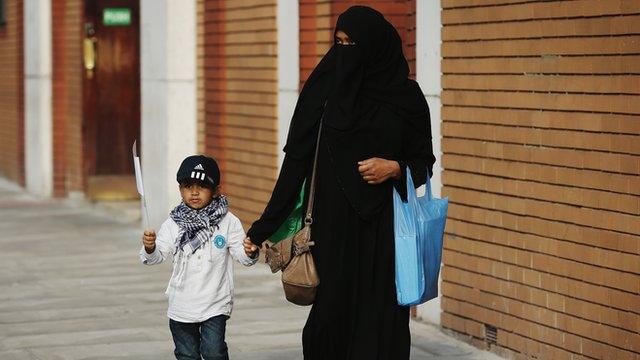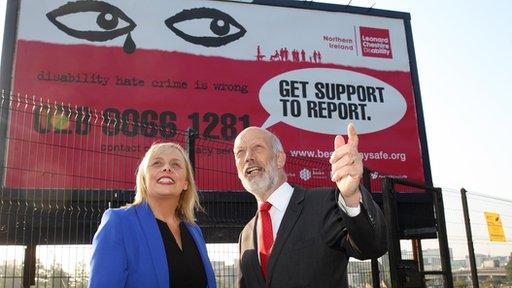Disability hate crime convictions drop, says CPS
- Published
.jpg)
The number of convictions for disability hate crime incidents have fallen
Prosecutors have pledged to do more to tackle disability hate crime after a drop in the number of convictions.
The total number of hate crime convictions rose by over 1,000 in 2013/14, according a report by the Crown Prosecution Service (CPS).
But convictions for hate crimes against disabled people dropped, prompting the CPS to pledge fresh action.
Director of public prosecutions Alison Saunders acknowledged there was "more to do" to combat such crimes.
A hate crime is a crime committed against someone because of their disability, gender-identity, race, religion or belief, or their sexual orientation.

Alison Saunders: 'I recognise that there is more to do, especially around disability hate crime'
The overall hate crime conviction rate is part of an ongoing upward trend over the last six years, and almost 85% of hate crime prosecutions now result in a conviction.
Successful convictions for disability hate crime cases during 2013/14 increased from 77.2% to 81.9% - but the number of convictions fell over the year, from 494 to 470.
The report also found that:
There was an increase in the rate of decisions to charge for disability hate crime, from 72.4% to 80%
Of the 11,818 racially aggravated cases prosecuted last year, 85.2% resulted in convictions and 75.9% of those convictions led to guilty pleas
Some 550 cases involving religiously-aggravated hostility in 2013/14 were prosecuted and 84.2% resulted in a conviction
The conviction rate for homophobic and transphobic hate crime stood at 80.7% - the proportion of cases resulting in a guilty plea increased from 71.6% to 72.3% in 2013/2014, and there was an increase in the number of guilty pleas over the year from 785 to 819
This year, the Transgender Equality Management Guidance was issued to police along with specific guidance on flagging transphobic hate crime.
Ms Saunders said: "While I'm delighted to see a record high conviction rate and that the rate of cases we are charging is up to 80% from 72.4% last year, we will be working hard with the police to encourage more disability hate crime cases to be referred to us, and we will be really focusing on our handling of these cases through the court system.
"Hate crimes can be particularly devastating to victims who have been targeted simply because of their race, their religion, their sexuality, gender, disability or age.
"These crimes display an ugly element of our society and one which it is very important that police and prosecutors feel empowered to tackle so they can bring offenders to justice."
'Shocking'
Stephen Brookes, of the Disability Hate Crime Network, said action on the issue was "still miles away from where we should be" and that there had been a failure "at all levels" to give disabled people confidence in the judicial system.
"There is a new working party needed to look in some detail at aspects of reporting, charging and sentencing of disability hate crime, at a time when we have a wake up call to the whole criminal justice system to step up the need to increase the number of prosecutions to reflect the seriousness of attacking all disabled people."
James Taylor, head of policy at charity Stonewall, said there was still "much work to do" on hate crimes.
"In the last three years alone 630,000 lesbian, gay and bisexual people have been the victim of a homophobic hate crime or incident.
"It's shocking that in 2014, lesbian, gay and bisexual people still face violence and intimidation simply for who they are on our streets, in our communities and on our sports fields."
- Published16 October 2014

- Published1 October 2014

- Published15 September 2014
